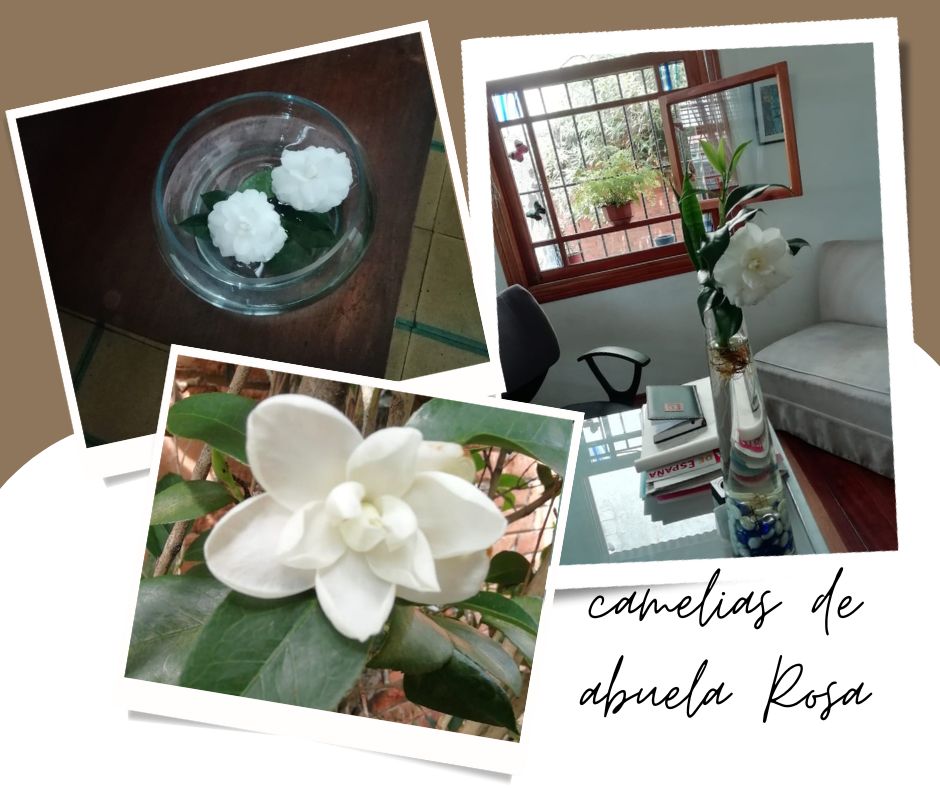October, month of heavy rains and floods. According to the old song that my grandmother Rosa used to sing, “of all the moons, October’s is the most beautiful.” How could I not remember my grandmother, despite her death when I was very small? I heard so many memories from my mother and my sisters, especially Patty, who tells me how our grandmother combed her long hair as they sat in the garden to sunbathe when Rosalinda was a 10-year-old girl. Only our grandmother called Patty by her real name. My grandmother, then in her 60s, was living in a chiaroscuro world—more dark than light, as her vision steadily faded.
The elderly are celebrated in Costa Rica throughout this month, with countless socio-cultural activities, health events, and entertainment. In a decade, our country is expected to have more than a million older adults, which represents a significant challenge for the entire institutional framework of the country. Today’s Costa Rica is home to 663,000 senior citizens—that is, people over 65 years of age.
This prediction of a growth spurt for our elderly population is based on our quality of life and low birth rates of recent years. Our territories with the highest percentage of older adults—Montes de Oca (San José), San Mateo and Atenas (Alajuela)—will be 20% older by 2050. The challenge is not only for the Costa Rican government, but for society as a whole, to provide quality care to a large segment of the population.
Older adults today require everything from dental care, to being an active part of smart technology centers. In a totally technological world—from the watches on our wrists to the way we order food, confirm medical appointments and download health reports—achieving the inclusion and well-being of the elderly implies helping them to learn about the advances and possibilities of technology.
Of course, our government already offers many kinds of support for the elderly, but it must increase strong comprehensive programs that maintain independence such as community housing plans. We need to strengthen and expand offerings not only in housing, care and health options, but also in education programs, such as the PIAM of the University of Costa Rica. At the PIAM, people 50 can access courses, languages, crafts, culture and entertainment, as well as sports and recreation.
However, it’s essential that the families of the elderly become involved: not only providing food and medicine on time, but also in providing all kinds of care that allows their parents, older siblings, and other family members to continue to maintain their independence.
There are two ages where the human being must reach out for help: childhood and old age. At those times, they live within the love of their families. Some continue to grow and others depart for the Infinite Lighthouse, as I call it.
Remembering my grandmother through my own memories: I’m sure she fed me some mush. I feel her by my side when, in the garden, I see camellias sprouting. She planted it when my parents bought the property. I cut those divine white flowers, which some would call old-fashioned, and place them in the hallway and in the vase in my room. I sit under the protective gaze of Grandma Rosa.
In my childhood, caregiving in our large family was divided between my parents and my older brothers, our beloved Harold and Boabdil. They would tell mom: “Let’s make some sandwiches. We’re going to go swimming tomorrow.” I benefited from those trips to swimming pools in Patarrá, in Desamparados. I learned to swim with my brothers when I was seven or eight years old. I loved seeing them doing competitions with our sisters Vera and Patty. Today I enjoy the pool and the sea like no one else.
I would watch my older sisters, expert pastry chefs who prepared delicious hand-beaten cakes because the mixers came later, or seasoning meats or vegetables as they helped mom prepare lunch. They gave me my first lessons in cooking, which I love. They weren’t as successful when they tried to teach me to polish floors like mirrors, their pride and joy: I, then and now, shirk that endeavor. But I am good at ironing clothes. How I loved to iron my brother Yiyo’s shirts. The vain young man had to look like a dandy before he could go out and visit his friends.
That care and family teachings have been repeated with nephews and even great-nephews, like Antonio, who today studies in Spain, but was cared for here at our home for two years with great love. In addition to traditional games, we opened the world of technology, having the kids draw and paint animals so we could send them to their parents who were working. Our cooking has been passed down, too: nieces like Mónica or great-nieces like Mariana have learned how to make tamales and are already preparing them for their parents. With other aunts, they have learned to make other dishes or to embroider.
Not only the government must take care of the elderly. Just as children and teens receive affection from different members of the family, we must take care of the elderly in their different needs and requirements, even when this means listening to anecdotes and advice for the umpteenth time.
That is how loved ones, those elders who will number one million in a decade—a group to which I hope to belong—can stay with us, wandering in our memories when they leave for the Infinite Lighthouse. Strengthening our ways of being, our world of filial love that should never be abandoned.






